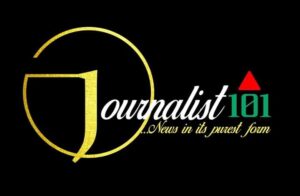The foreign exchange (FX) opened on Friday morning after the holidays with the Naira, Nigeria’s currency exchanging with the US dollar at N1,130 at the parallel market.
This represents 0.88 percent depreciating over N1,120 per dollar exchanged during the holidays.
Traders attribute the fluctuation in exchange rates to the irregularity of trading volumes during the holiday season.
With banks closed for the festivities, transactions occurred sporadically, leading to deviations from standard market rates. Traders emphasized that the rates quoted during the holidays were not representative of normal market conditions, as transactions were limited.
“We are purchasing at either N1,120 or N1,115 and selling at N1,130 or N1,125 per dollar,” explained a trader at the Lagos Airport to BusinessDay on Friday.
The currency dealer emphasized that the rates witnessed during the holiday period, with some transactions quoted as low as N900, were not indicative of the true market rate. “The rate of yesterday was not normal,” the trader added. “This is the rate we are selling this morning.”
Some traders expect the naira to appreciate above N1,120 per dollar as more dollars are coming into the market since the implementation of some FX policy measures as directed by the Central Bank of Nigeria (CBN).
Despite declining external reserves, Nigeria’s currency displayed strength on Monday before the holidays, reaching 1,230.61 per dollar on the official FX market.
According to data from the FMDQ Securities Exchange, the Naira gained 1.66 percent, with the dollar quoted at N1,230.61, surpassing Friday’s rate of N1,251.05 at the Nigerian Autonomous Foreign Exchange Market (NAFEM).
Monday’s trading session saw the Naira achieving an intraday high of N1,261 per dollar, an improvement from Friday’s N1,281 closing.
Meanwhile, the intraday low appreciated to N1,200 from the previous N1,220 recorded on Friday.
The Association of Bureaux De Change Operators of Nigeria (ABCON) has given its backing to the latest directive by the CBN on stopping the use of foreign currency denominated collateral for accessing naira loans.
The CBN’s directive banning the use of Non-Export Domiciliary Account Collateral for naira loans will boost dollar liquidity, support reserves accretion and strengthen the financial services sector, Aminu Gwadabe, president of ABCON said.
According to the CBN directive to banks, the use of foreign currency-denominated collaterals for Naira loans is now prohibited, except in cases where the collateral is in the form of Eurobonds issued by the Federal Government of Nigeria or guarantees provided by foreign banks, including Standby Letters of Credit.





![Protected: N10bn Abia Airport: The Truth We Found Out [Documents]](https://i0.wp.com/journalist101.com/wp-content/uploads/2021/02/Abia-state-map-600x375-1.jpg?resize=218%2C150&ssl=1)

